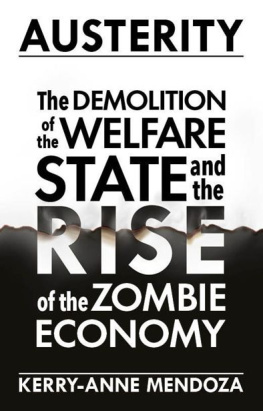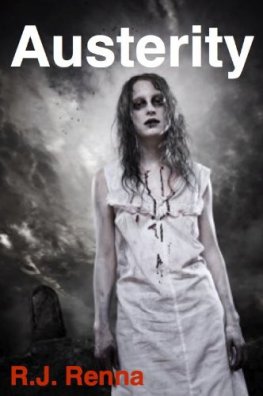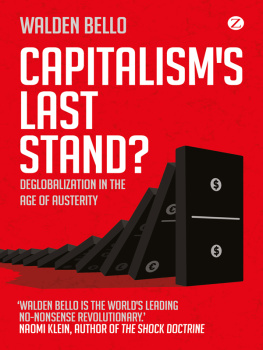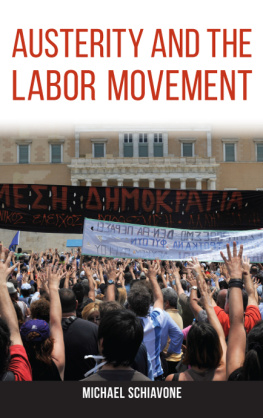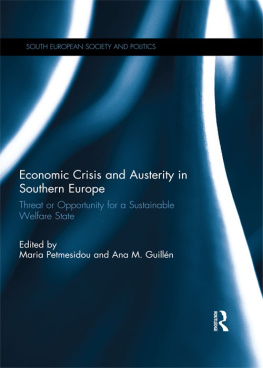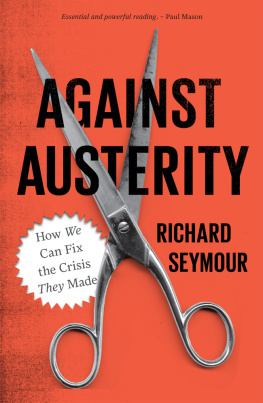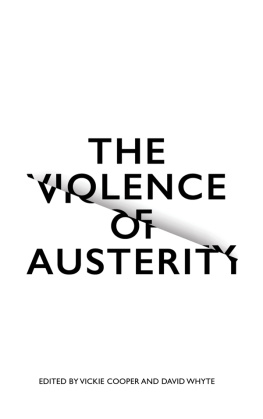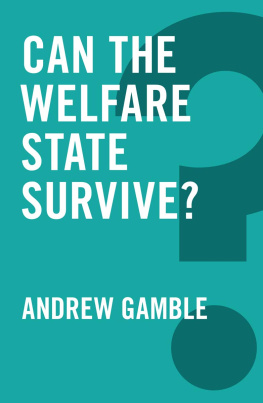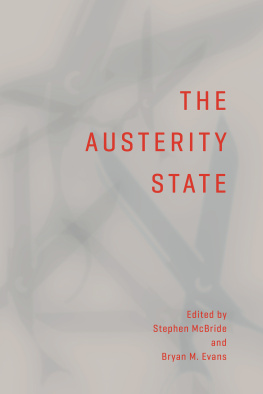In July 1944, the soon-to-be victorious powers of the Second World War met in Bretton Woods, New Hampshire. Their mission: to lay down the architecture of the post-War global political and economic systems. They stated that their aim was to free the world from fascism forever. In reality, they built the foundations for a new fascism corporate fascism and modern Austerity is merely a vehicle to deliver it.
Austerity is not a short-term disruption to balance the books. It is the demolition of the welfare state transferring the UK from social democracy to corporate power. We are witnessing the end and not the beginning of a process, set in train at the close of the Second World War, at Bretton Woods.
Austerity has been presented as necessary, constructive and temporary by governments across the world, the UK included. By the end of this book, it will be clear to the reader that Austerity is unnecessary, destructive and intended as a permanent break with the traditions of social democracy.
This book explores the methods by which the pillars of social democracy law and justice, employment rights, civil liberties and human rights, and the welfare state have been bulldozed, one after the other, under the guise of Austerity.
This destruction has happened so cynically and quickly in Britain that, without having kept a constant eye on the issues at hand, many people still believe they live in a social democracy and that they hold rights that were confiscated long ago. Sadly, they will not realize that those once-cherished rights are now defunct until they try, for the first time in their lives, to claim them.
The road to Austerity
The birth of the neoliberal project
Austerity did not start in the UK in 2010 or Greece in 2009. It has been a tactic used to deliver the goals of the neoliberal project throughout the latter half of the 20th century. Most of the economic policies and institutions delivering Austerity today were set up in the final months of the Second World War.
In 1944, before the end of World War Two, a conference took place in Bretton Woods, New Hampshire. It was at this conference that the US, now with the worlds largest standing army and the only functioning economy in the West, set out the framework for the neoliberal project. The International Monetary and Financial Conference of the United and Associated Nations was led by US Secretary of the Treasury Henry Morgenthau, his chief economic advisor Harry Dexter White, and leading British economist John Maynard Keynes although Keynes and White had been working on plans for post-War economic co-operation since at least 1941. The conference took place at the Mount Washington Hotel in Bretton Woods, from 1 to 22 July 1944. Delegations from 44 nations attended, including a 30-member delegation from China (second only to the US in size), and no fewer than seven future prime ministers and presidents.
The representatives were keen to establish a stable post-War economy, concerned to avoid the economic warfare, hyper-inflation and market instabilities of the inter-war period. But there were other motives. The major colonial powers of Europe Austria, Hungary, the UK, France and Germany were stricken. Their economies were no longer fully functioning and each country had sustained enormous damage to its infrastructure. What would become of the colonies, and their supply of free or cheap labour and natural resources to the Great Powers? These questions were of great importance to the delegates at Bretton Woods. As in 1884, when the colonial powers had met at the Berlin Conference to carve up between them what King Leopold of Belgium described as this magnificent African cake so too, the powers of 1944 were motivated by empire, albeit a transformed version of the idea.
Unlike in 1884, there was a new and powerful negotiator at the table: the United States of America.
An insight into the thinking of Britain at this time comes from a speech Winston Churchill made to Parliament on Empire and Commonwealth Unity on 21 April 1944.
A great number of these questions concern our future, and they have been raised directly or indirectly. What changes are to be made in the political, economic and defence structure of the British Commonwealth and Empire? In what way will an ever more closely knitted British Commonwealth and Empire become also, at the same time, more closely associated with the United States? How will this vast bloc of States and Nations, which will walk along together, speaking, to a large extent, the same language, reposing on the same body of common law, be merged in the supreme council for the maintenance of world peace? Should we draw closer to Europe there is another question and aim at creating, under the Supreme World Council, a living union, an entity in Europe, a United States of Europe? Or, again, should we concentrate upon our own Imperial and Commonwealth organization, or upon our fraternal association with the United States, and put our trust in the English Channel, in air power, and in sea power?
Other more familiar topics than these because it is easy to see, from the recurrence of these topics in so many speeches, the way in which the modern mind of the House is moving have been raised, like Free Trade versus Protection, Imperial Preference versus greater development of international trade, and international currency in relation to the policy of the United States and the existence of a vast sterling area. One even sees the gold standard peering around the corner, and, of course, British agriculture close at hand.
This section of the speech captures the dilemmas Churchill was wrestling with: the real need for US financial and political support; the question (which remains today) of whether to ally primarily with Europe or the US; and the fate of the British Empire. Churchill refers to Imperial Preference this was the system of preferential trade tariffs, effectively free-trade agreements allowing goods and services to be traded within the empire at a lower cost than outside of it. Remember this concept of Imperial Preference, when considering if Empire ever ended, or simply evolved.

